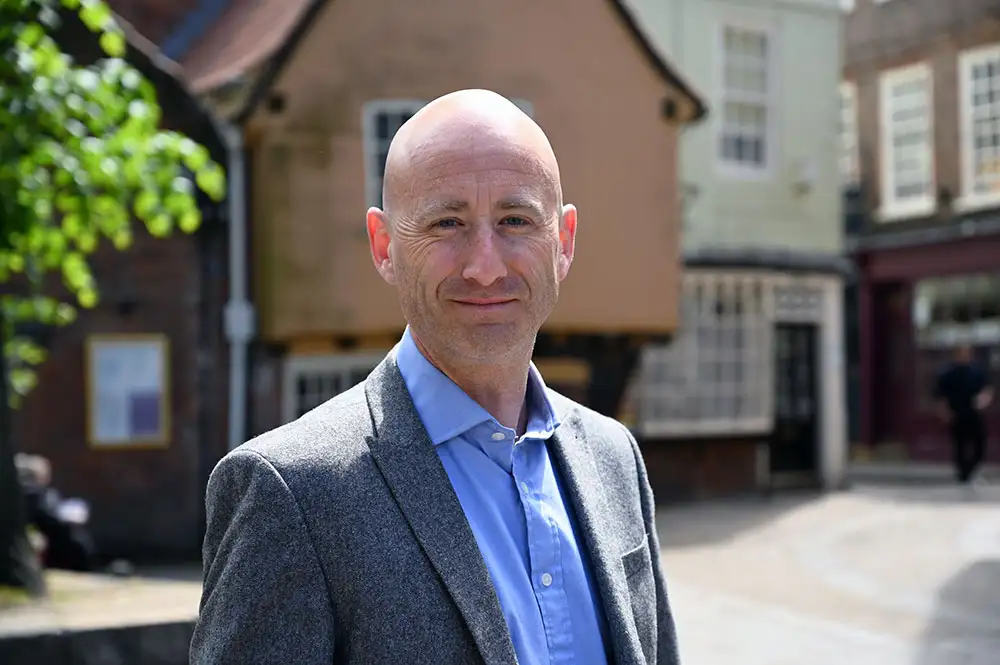Should York introduce a tourism tax? It’s a hot topic at the moment.
York Central MP Rachael Maskell wants the levy – she’s written to ministers asking for a new law to bring one in, and raised it at Prime Minister’s Questions.
Her Labour colleagues who run the city council are also on board, with deputy leader Pete Kilbane calling the idea a ‘no-brainer‘.
A tourism tax, its proponents say, could raise millions in extra funding to reinvest in York’s economy at a time when money is tight.
And in a consultation on City of York Council’s budget proposals more than 80 per cent of those surveyed said they would back a charge in principle.
But what about the people on the front line of York’s tourism industry? Here’s what some of the leaders of our hospitality sector think of the plans.
Andy Barnsdale, general manager of The Milner York, said a levy could deter people from visiting York.
He said: “The hospitality industry is already facing significant challenges, particularly with the additional financial cost implications from minimum wage and National Insurance increases in April.
“Adding another cost, one that would ultimately be passed onto guests, risks making York less competitive and affordable, further impacting an already financially challenged hospitality industry.”
Paul Helmsley, of York’s Monk Bridge House guest house, said he was open to the idea but he would want to see how the earnings would be spent.
He said: “Assuming the charge is relatively small and that funds raised are spent in an open and transparent way for the benefit of the city, then in principle I would have no objections.
“If funds just disappeared into city coffers and residents and tourists alike couldn’t see what funds were being used for then I would be against.”
One guest house owner who asked not to be named said they were concerned that it would result in more administration for businesses with little benefit.
They said: “Does this make us responsible if the guests do not pay? Do we get penalised if guests do not pay?
“There is no guidance nor any apparent consideration for this, I don’t think it would cause the same issues for the larger hotels who have 24-hour reception staff.”
‘Jeopardise York’

A spokesperson for industry body Hospitality Association York said conversations about proposals had been ongoing for about a year but no progress had been made.
They added no plans had been presented to them for a scheme which would see businesses voluntarily collect money from customers.
The spokesperson said: “The introduction of any further costs to our customers will jeopardise the competitiveness of York as a tourist destination, which could negatively impact the local economy and the thousands of jobs supported by our industry.
“The association has always maintained that in the event that a tourism tax is forced upon us, we would like to be heavily involved to ensure that the raised funds are spent on things to benefit the tourism experience.”
York BID executive director Andrew Lowson said businesses in York and elsewhere were watching Manchester closely to better understand the process of setting a charge up.
Mr Lowson said: “The obvious benefit is that it can introduce new revenue streams to be spent in the local area.
“However, if such a process was to be considered in York, there would have to be an agreed plan between businesses and wider partners on how and where that money should be spent.
“Hoteliers, who would have to adapt their processes to collect the tax, would need assurances that it would not deter potential customers coming to the city or push them into alternative accommodation where the tax would not be applicable.”
What is a tourism tax?

The idea for a tourist tax is based on charges which have been introduced in popular holiday destinations such as Barcelona, Porto and Prague.
Visitors are charged an additional fee on top of their hotel bills, with Barcelona’s totalling €4 (£3.36) a night for instance.
Their introduction on the continent has prompted calls for similar levies in the UK and Manchester became the first city in the country to introduce one in 2023, charging £1-a-night.
But councils currently have no powers to implement a tax themselves, with Manchester’s City Visitor Charge introduced using legal workarounds.
A Business Improvement District (BID) for hotels and other accommodation providers was launched which collects the levy but efforts to bring them in elsewhere have faced opposition.
Council leaders back the tax
York Council’s Labour Leader Coun Claire Douglas and its economy spokesperson Coun Pete Kilbane are among those who have backed a tourism tax.
Coun Douglas said the authority’s budget consultation results showed there was strong support for a levy amongst the public.
The leader said: “This means it’s right we consider how York can move towards a position where it has the ability to introduce a levy.
“Our conversations will continue with hospitality businesses in the city, as we’re keen to work in partnership on proposals like this that would see more investment in York’s visitor economy.”
Coun Kilbane said in December the charge was a no-brainer and the council were continuing to lobby the Government for powers after efforts to get hotels on board voluntarily stalled.
He added the council wanted to get powers to collect the charge so it could be spent across York rather than being controlled by a new BID.
Labour York Central MP Rachael Maskell called on Prime Minister Keir Starmer to give local authorities the power to levy charges on tourists in Parliament on Wednesday, January 15.
Ms Maskell has estimated that charges of £1 or £2-a-night on stays could raise £1.7m and £3.4m-a-year respectively.
But the prime minister said places could already chose to implement a levy voluntarily and the Government was focused on helping hospitality with Business Rate relief.
A Government spokesperson said: “There are currently no plans to introduce a tourism tax in England.”
